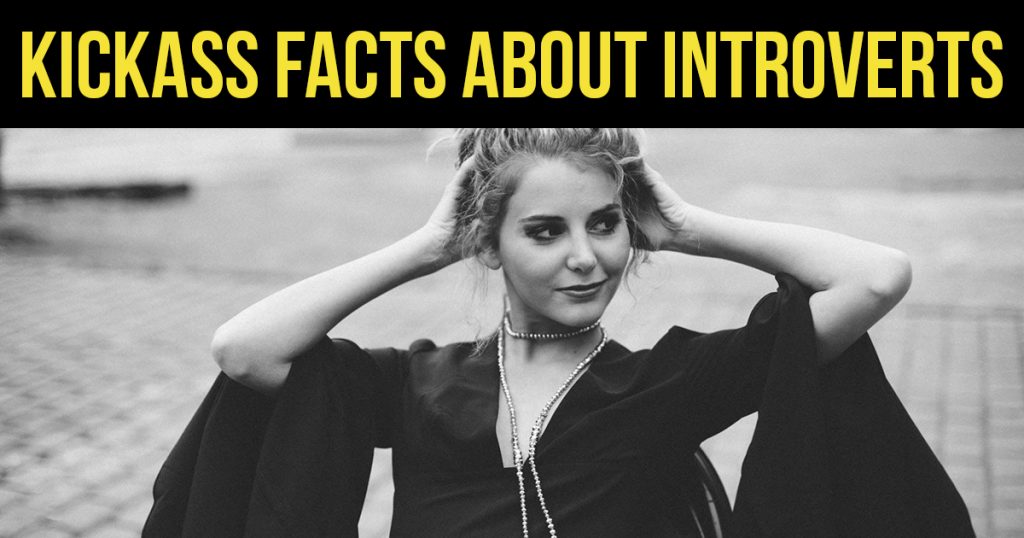Introvert VS Antisocial – Here’s the difference

Many psychological concepts make their way into everyday conversations, and most individuals are guilty of trivializing or oversimplifying what they don’t completely comprehend. For instance, we often tend to refer to someone as ‘antisocial’ when they decline to engage in social interactions.
However, that is not the correct use of the term.
According to American Psychological Association, “antisocial refers to denoting or exhibiting behavior that sharply deviates from social norms and also violates other people’s rights.”
So how should one refer to them?
We should refer to them as ‘asocial’. Asocial refers to declining to engage, or incapable of engaging, in social interaction.
We don’t just make the mistake between the terms ‘antisocial’ and ‘asocial’. We also tend to group introverts in the same category as antisocial. You might be wondering why I just said that. There are major differences between introverts and anti-socials.
According to American Psychological Association, “Introversion is an orientation toward the internal private world of one’s self and one’s inner thoughts and feelings, rather than toward the outer world of people and things. Introversion is a broad personality trait and, like extraversion, exists on a continuum of attitudes and behaviors. Introverts are relatively more withdrawn, retiring, reserved, quiet, and deliberate; they may tend to mute or guard expressions of positive affect, adopt more skeptical views or positions, and prefer to work independently. [concept originated by Carl Jung for the study of personality types]”
So what are some differences between Introverts and antisocial?
Disclaimer: This article is meant for educational purposes only. Do not use information in this or any other article to self-diagnose or diagnose other people. If you feel that you or someone close to you may possess some of the characteristics mentioned in this or any other article on our blog and need help then please, consult a licensed mental health professional. This article is not a substitute for professional advice, but for general guidance.
- How they act in a social setting.
A common misconception that we have is, introverts are people who like to be alone. But the truth is, Introverts don’t really mind company. Introverts tend to have one or two close friends instead of a large social circle and get drained by too much social interaction and are usually the first to leave a party. What segregates introverts from extroverts is that after a long weekend of partying, an introvert needs time to recharge and during that time they wouldn’t necessarily have too many people around them.
An antisocial person may attend the party too and can be witty, charming, and fun to be around. However, they may have little or no regard for right or wrong. They are often antagonistic and frequently act insensitively. They may also resort to lying and exploiting others, behaving violently or impulsively, and having problems with drug and alcohol use. Because of these characteristics, people with this disorder typically may find it hard to be in social surroundings.

Photo by olia danilevich on Pexels.com
- Their feelings.
A study conducted by the University of North Carolina showed that introverts are more likely to be diagnosed with depression. Why introverts don’t report higher levels of happiness is unclear, but it could have a lot to do with how introverts evaluate happiness. Introverts value higher-quality friendships and better emotional stability. It could be tough to maintain such a high degree of satisfaction all the time.
The study conducted by Barbara Gawda, Maria Curie-Sklodowska University, results supports the view that individuals with ASPD experience negative feelings more often than positive feelings (Dolan and Fullam 2005; Patrick 2007). Recent studies have found that individuals with ASPD are able to feel anger and rage but unable to experience fear and dissatisfaction (Blair et al. 1997; Blair et al. 2002; Blair et al. 2006; Kosson 2002).

Photo by Andrew Neel on Pexels.com
- Traits.
According to WebMD introverts;
- Need quiet to concentrate
- Are reflective
- Are self-aware
- Take time making decisions
- Feel comfortable being alone
- Don’t like group work
- Prefer to write rather than talk
- Feel tired after being in a crowd
- Have few friendships, but are very close with these friends
- Daydream or use their imaginations to work out a problem
- Retreat into their own mind to rest
Those with antisocial personality disorder (ASPD) may begin to show symptoms in childhood, but the condition can’t be diagnosed until adolescence or adulthood. According to Cleveland Clinic, antisocial people;
- May be physically aggressive.
- Behave recklessly.
- Blame others for their problems.
- Break the law.
- Destroy property.
- Manipulate or deceive others.
- Show no remorse for hurtful actions.
- Causes.
Everyone’s personality comprises a unique combination of thoughts, emotions, and behaviors. It’s how people see, comprehend, and relate to the world around them, as well as how they perceive themselves. Personality emerges during childhood, molded by a combination of genetic traits and environmental influences.
The actual cause of antisocial personality disorder is unknown, however, genetics may predispose you to the illness, and life events may trigger it.It is also believed that during brain development, changes in the functioning of the brain may have resulted.
Scientists are unsure whether introversion or extroversion has an exact cause. However, what they do know is that the brains of the two personality types operate in somewhat different ways. Introverts have more blood flow to their frontal lobe than extroverts. This area of the brain aids with memory, problem-solving, and planning.
- Relationships.
Introverts are perfectly capable of having healthy, meaningful relationships with others. Introverts tend to have close relationships with a small group of people. They may not open up to everyone who wants to strike up a conversation, but the individuals they care about get to know them well and form genuine connections with them. Even though they may only have a few friends, it doesn’t mean that they’re socially inept in any way. It’s simply a matter of personal preference.
At its core, the incapacity to consider other people’s thoughts, feelings, and intentions can lead to a detrimental disdain for others. In Adults with ASPD, the condition can be harmful to the affected person as well as anyone who comes into contact with them. Risk-taking behaviors, harmful activities, and criminal acts are more common in people with an antisocial personality disorder. Those suffering from the condition are sometimes described as having no conscience and feeling no regret or guilt for their detrimental deeds. This may make it hard for them to maintain healthy relationships.

Photo by Emma Bauso on Pexels.com
References
Jennifer Casarella, MD (March 09, 2020). Angie Won (February 22, 2021). Antisocial Personality Disorder. Retrieved June 24, 2021, from
https://www.webmd.com/mental-health/antisocial-personality-disorder-overview
Kendra Cherry, MS (July 24, 2020). What Is Antisocial Personality Disorder (ASPD)? Retrieved June 24, 2021, from
https://www.verywellmind.com/antisocial-personality-disorder-2795566
Mayo Clinic(December 10, 2019). Antisocial personality disorder. Retrieved June 24, 2021, from
Barbara Gawda (January 22, 2013). The Emotional Lexicon of Individuals Diagnosed with Antisocial Personality Disorder. Retrieved June 24, 2021, from
https://www.ncbi.nlm.nih.gov/pmc/articles/PMC3825036/
Psychology Today. Introversion. Retrieved June 24, 2021, from
https://www.psychologytoday.com/us/basics/introversion
Michael W. Smith, MD (June 24, 2020). Introvert Personality. Retrieved June 24, 2021, from
https://www.webmd.com/balance/introvert-personality-overview



Responses